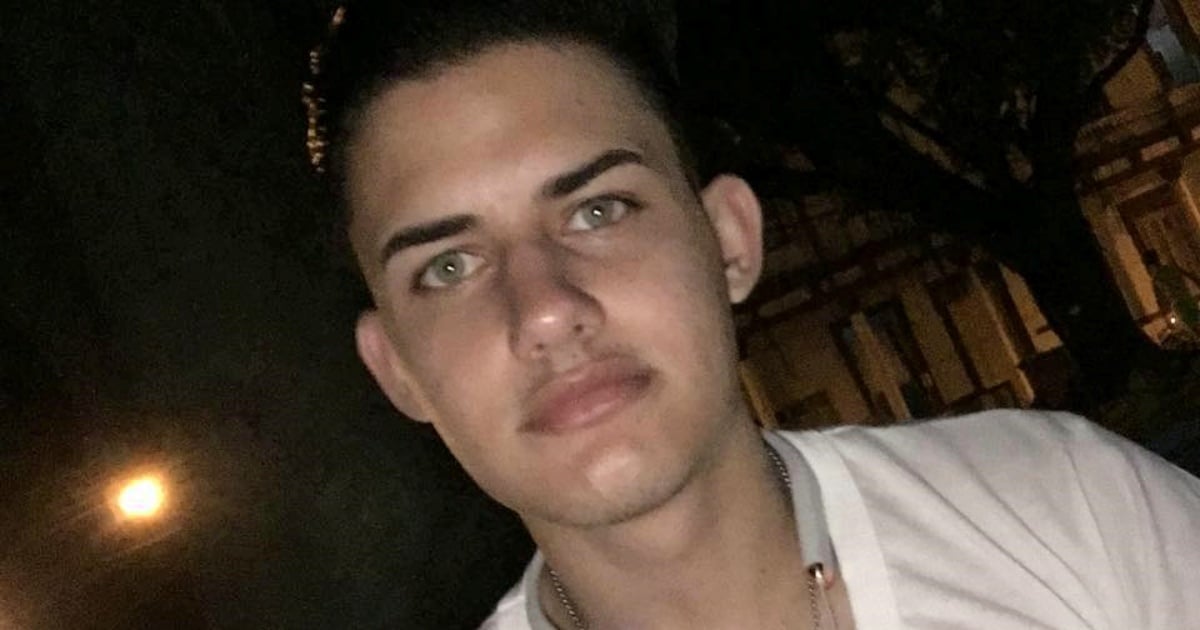
Samuel Eugenio Crespo Martínez, a 26-year-old Cuban doctor from Cabaiguán in the province of Sancti Spíritus, is fighting for his life after being reported in critical condition with encephalitis, associated with a complication of the Oropouche virus, according to recent reports on social media.
"Let us come together in a common plea to pray for the health of Samuel Crespo Martínez, reported as critically ill with encephalitis due to the Oropouche virus, in the hospital of Sancti Spíritus. A good boy, always good, and as a doctor, also wonderful. For God, nothing is impossible. Please, let us all pray for him," wrote Isabel Simón Serrano on Facebook.
In another emotional post advocating for the recovery of the young man, chess coach Osmani Pedraza Ledón reviewed the qualities of Samuel Crespo and his past involvement with the sport of chess.
"You have to recover, Samuel! One of the 'zero defects' people I have known in my life is going through a delicate moment of health, admired by everyone (more so by the female sex), a noble boy, a noble chess player, a noble doctor, from Cabaiguán, Sancti Spíritus, Samuel E. Crespo Martínez," wrote Pedraza Ledón.
"Samuelito was born on January 22, 1998, and I was at almost all the competitions he played in. He won two Pequeños Guerrilleritos tournaments in Santa Clara, one at the Academy and another at the ECO Hall. I saw him at the Pioneril in San Nicolás 2009, at the Escolares in GTM 2011, at the Juvenil in San Nicolás 2013, and in several other events," added the sports coach.
Osmani Pedraza specified that over the years, Samuel became an "excellent doctor," and he mentions that since then "he is idolized by all his patients."
"For this, and much more, you have to recover Samuel!" she concluded.
In the comments section of his publication, Pedraza Ledón also confirmed that the young man Samuel is a victim of a complication from the Oropouche virus.
This Friday, an internet user who claimed to have been Samuel's professor in the first year of his Medical career confirmed that the young man - whom she described as an "exceptional" student and "a great human being" - reiterated that he is still fighting for his life.
"We are all united in soul and thought for his recovery. To his family, much strength," he concluded.
As of the closing of this note, there are no other details about the case of this young doctor, afflicted by one of the worst complications associated with the Oropouche virus.
The Oropouche virus in Cuba
The Minister of Public Health, José Ángel Portal Miranda, stated during the opening of an international event on Monday in Havana that, since the Oropouche virus was detected in Cuba on May 27, more than 400 cases have been confirmed on the island up to August.
The figure with reports on social media about the increase of the disease on the island.
According to the information revealed by Portal Miranda, Cuba would rank second in the Americas in the number of infections from the disease, which as of August 1 accounted for 8,076 confirmed cases in five countries in the region, including Brazil (7,284), Bolivia (356), Peru (290), and Colombia (74).
The only two deaths associated with the virus were reported by Brazil at the end of July.
The minister did not specify whether the figure announced takes into account only those cases confirmed through laboratory diagnosis, a resource that is practically not applied on the island due to a lack of reagents and other supplies.
The number of Oropouche virus cases in Cuba mentioned by Portal Miranda contrasts with the 35,000 cases that were reported under the designation "endemic channel of febrile syndrome" by the Ministry of Health in a table broadcast on a Mesa Redonda in early July.
In recent days, the Centers for Disease Control and Prevention (CDC) in the United States issued a level 2 alert, on a scale of 4, due to the increase in cases of Oropouche virus in Cuba.
U.S. authorities recommended that travelers take enhanced preventive measures to avoid contracting this arboviral disease, and advised pregnant women not to travel to the island unless absolutely necessary.
It is confirmed by the Ministry of Public Health (MINSAP) of Cuba that the disease is present throughout the national territory, including the Isle of Youth.
The Oropouche, which is often confused with dengue due to the similarity of its symptoms, can affect people of any age.
Symptoms include high fever, headache, muscle aches, joint stiffness, nausea, vomiting, chills, and sensitivity to light. Among the possible severe complications that the Oropouche virus can cause are encephalitis and meningitis, which are inflammatory diseases of the membranes surrounding the brain and spinal cord.
What do you think?
COMMENTFiled under: